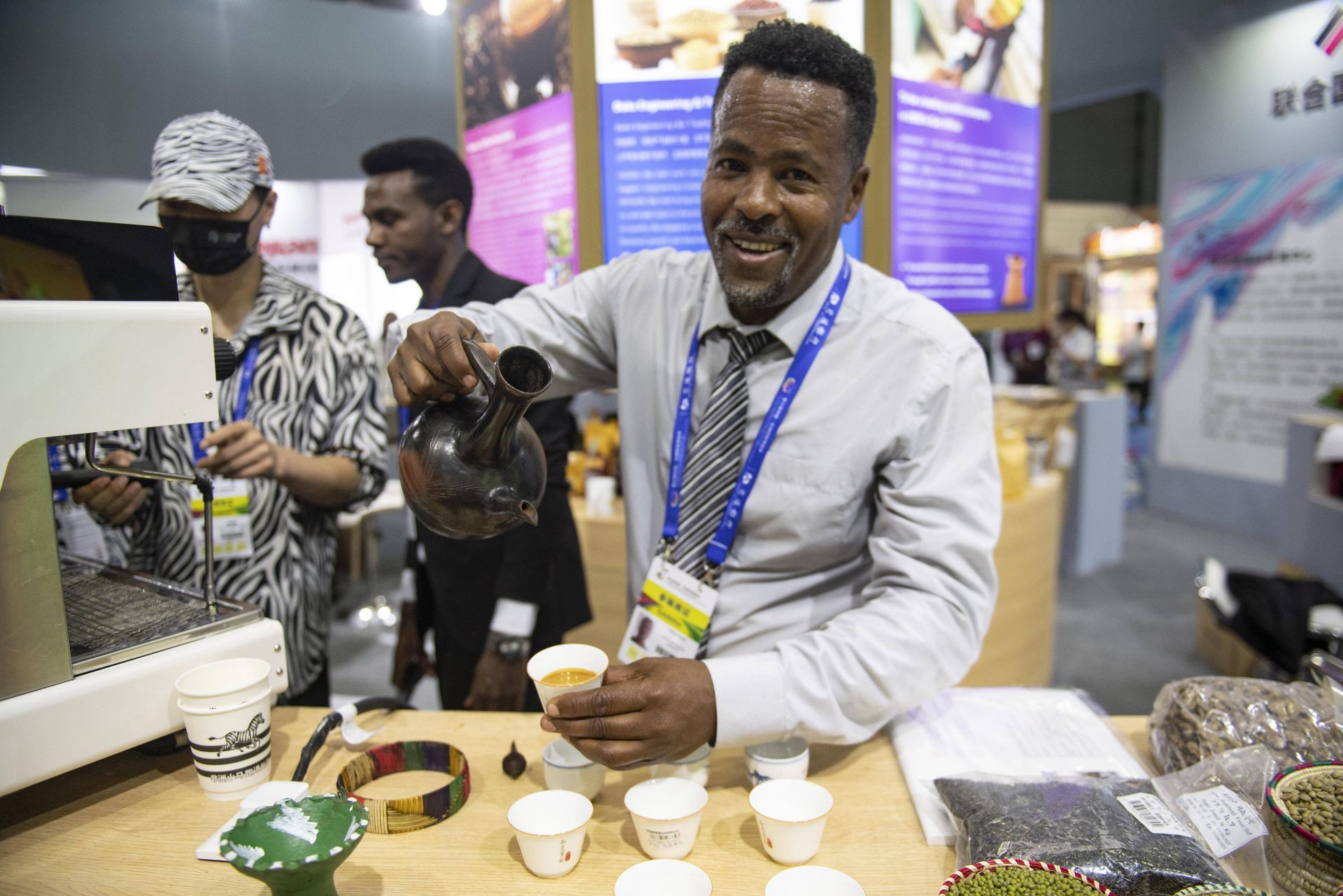Sino-African cooperation drives Global South modernization
来源:China.org.cn 2024-11-20 17:21

An exhibitor brews Ethiopian coffee during the third China-Africa Economic and Trade Expo at the Changsha International Convention and Exhibition Center in Changsha, Hunan province, on June 29, 2023. [Photo/Xinhua]
The 2024 Summit of the Forum on China-Africa Cooperation (FOCAC), held in Beijing in September, marked a new phase in the cooperation between China and the African continent. China announced a raft of ambitious development projects at the event, particularly in the areas of clean energy and digital technologies, paving the way for high-quality China-Africa cooperation over the next three years.
"Africans today are saying that China is on our side," said Yassine Fall, Senegal's foreign minister on the summit's sidelines. Indeed, China has emphasized its solidarity with the Global South, particularly African nations, on various occasions, highlighting shared interests and common commitment to cooperative development. China defended the principle of non-interference in the internal affairs of other countries and promised to represent African interests in international institutions.
Since the 2021 FOCAC ministerial meeting in Dakar, Senegal, held three years ago, Beijing has been working to build a community with a shared future with African countries by strengthening exchanges of governance experiences, as well as striving for modernization in the new course of relations and a common future in the Global South.
China's promises were matched by concrete actions at this year's forum when it pledged 360 billion yuan ($50.69 billion) in financial support to implement 10 partnership actions in Africa over the next three years.
The action plan covers multiple areas, including mutual learning among civilizations, trade prosperity, industrial chain cooperation, connectivity, development cooperation, health care, rural revitalization and people's well-being, people-to-people exchanges, green development and common security.
For example, China will support Chinese and African universities in implementing the "China-Africa Universities 100 Cooperation Plan" and the establishment of 25 China-Africa research centers. It will also expand their cooperation in e-commerce, develop a cooperation center for digital technology, replenish the funds available to the China-World Bank Partnership Fund, and support the organization of international sports events in Africa.
China also announced projects in the health field with the development of 20 initiatives to fight malaria and the establishment of centers for disease prevention. Moreover, it will also provide 1 billion yuan ($141 million) of emergency food aid and send hundreds of experts to Africa to implement welfare projects.
The 2024 FOCAC Summit was not just a "business as usual" meeting, but a platform to revive a philosophy that blends elements of the Confucian and ubuntu traditions to jointly write the new scenario of a universally beneficial and inclusive economic globalization. It fully embodies the pragmatic, inclusive and open spirit of China-Africa cooperation.
Over the years, under the FOCAC framework, 52 African countries and the African Union Commission have deepened their cooperation with China by signing various documents under the Belt and Road Initiative. To date, a wide variety of signature projects have been launched. At this year's forum, China pledged to roll out 1,000 "small and beautiful" livelihood projects across the African continent which are expected to make significant differences in the lives of local people and improve their well-being.
The African continent, home to several of the world's fastest-growing economies, has impressive potential for growth. The concerted efforts of China and Africa to pursue modernization will have a profound impact on development of the Global South and world sustainable progress. Just as UN Secretary-General António Guterres said, China-Africa cooperation is the symbol of South-South cooperation, which provides important opportunities for African development.





